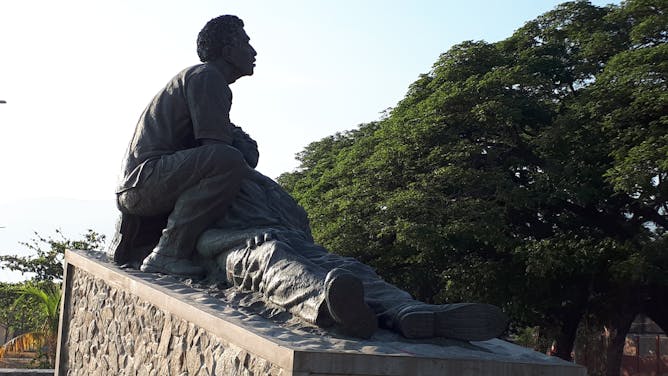|
It’s Let’s Talk Day, a Bell Canada initiative to get people talking about mental health. Today in The Conversation Canada, we’ve got a fascinating piece by University of Toronto psychiatrist David Gratzer who looks into the not-too-distant future to a time when smartphones and wearables will help treat depression. Considering that now half of those dealing with depression go untreated, technology could be a way for more people to access quality care.
Isaac Nahon-Serfaty of the University of Ottawa provides an analysis on the political role of the military in Venezuela and how it’s supporting a regime that’s receiving worldwide criticism for being corrupt and violent.
We’ve been able to treat tuberculosis sine the 1940s, but TB continues to spread and is one of the top 10 causes of death across the world. Lisa Lix of the University of Manitoba tells us about a study she’s involved in that’s aiming to use better data to determine those most at risk for TB, including Indigenous people and those born outside of Canada.
And finally…Donald’s Trump war with the media continues on a daily basis and one of the fallouts is that his constant tirades about “fake news” are fuelling mistrust in journalism. What can be done to rebuild trust? Kamyar Razavi of Simon Fraser University reports on something called “solutions journalism” in which reporters highlight remedies to social issues.
Regards,
|

Currently only half of people with depression access potentially adequate treatment, according to one research study. Digital devices could help.
(Unsplash/boudewijn huysmans)
David Gratzer, University of Toronto
Using smartphones and wearable devices to identify mental health symptoms and deliver psychotherapy will allow more people to access quality care, according to one psychiatrist.
|

Using databases and community partnerships, we can end TB in Canada.
(Shutterstock)
Lisa Lix, University of Manitoba
In Manitoba, Canada, researchers have used health databases to better understand how people with tuberculosis interact with the health-care system.
|

Venezuelan President Maduro gestures to military leaders to keep their eyes open following a news conference at the presidential palace in Caracas, Venezuela.
(AP Photo/Ariana Cubillos)
Isaac Nahon-Serfaty, University of Ottawa
Venezuela's military is an armed political actor with a gun to the head of a society that is urgently demanding a return to democracy.
|

As U.S. President Donald Trump continues to cry ‘fake news’ and stir up distrust of the media, it’s time to embrace ‘solutions journalism’ that focuses on how to solve problems.
(AP Photo/Evan Vucci)
Kamyar Razavi, Simon Fraser University
"Solutions journalism" aims to give more prominence to solution-oriented narratives. It reports on responses to social problems by moving the solutions out of the footnotes.
|

Un monument à la mémoire des victimes de la guerre du Timor-Leste. Le Canada a beaucoup à apprendre de deux Commissions de vérité et réconciliation (CVR) qui se sont tenues en Asie, et non seulement des leçons à enseigner aux autres.
Auteur David Webster
David Webster, Bishop's University
Le Canada a beaucoup à apprendre de deux Commission de vérité et réconciliation (CVR) qui se sont tenues en Asie, et non seulement des leçons à enseigner aux autres.
|
Health + Medicine
|
-
Nerys M Astbury, University of Oxford
A new review suggests that meal-replacements diets can be a safe and effective way to lose weight.
|
|
Arts
|
-
Wayne Muller, Stellenbosch University
Realism and addressing pressing contemporary South African societal issues have been the focus of local opera since 1995.
|
|
Culture + Society
|
-
Clay Calvert, University of Florida
Rapper Jamal Knox was convicted of making terroristic threats against two Pittsburgh police officers in a rap song. Now his case is before the Supreme Court, with serious implications for free speech.
|
|